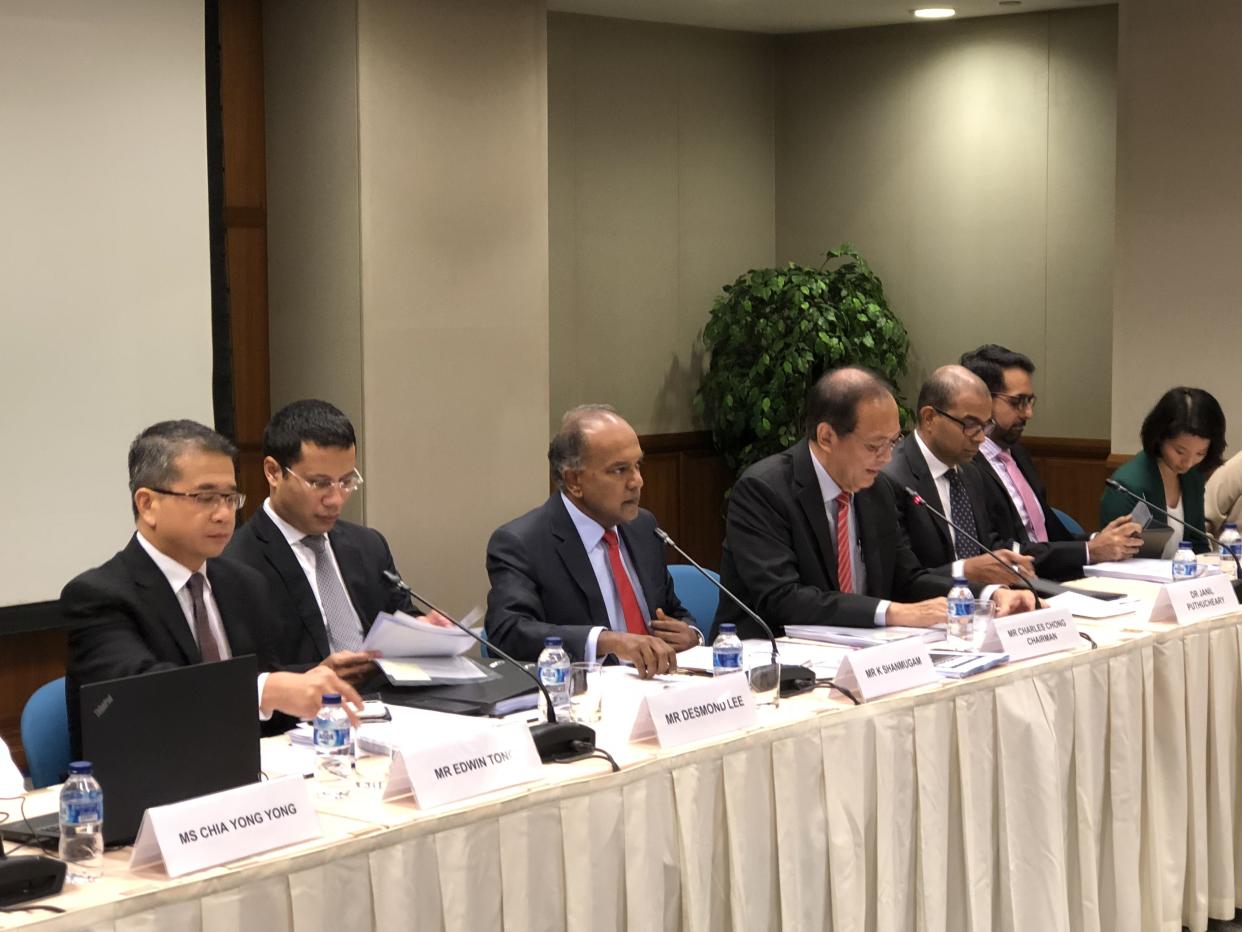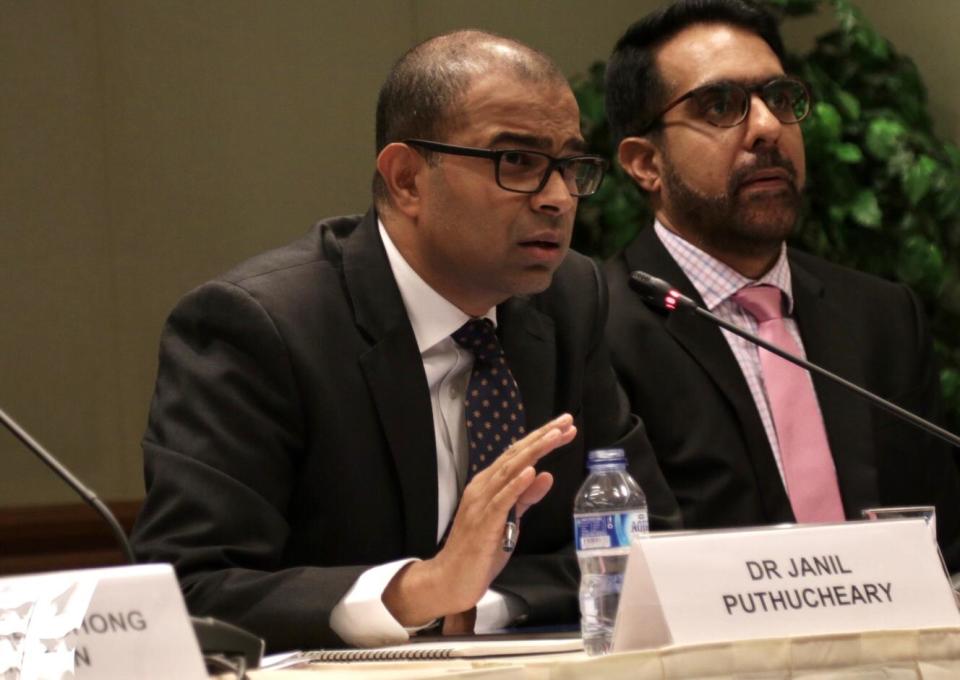COMMENT: Dealing with fake news is a police-and-thief game

After muddling through an archaic media policy of command and control, a new reality has dawned for Singapore. Reliance on the late Lee Kuan Yew’s silver bullet of active government intervention is just not going to work in the modern era.
Under the former Prime Minister’s leadership and that of his successors, the Singapore way has always been its way or the dark way – using the strong arm of the law to bring publications that don’t play ball to heel and deploying brute force and robust arguments to make them loyal servants of the state. The dark way has seen the closure of newspapers like the Eastern Sun and the Singapore Herald in the 1970s, not to mention packing off journalists and editors who try to do their work in a fair and balanced way to the proverbial Siberia.
Thursday’s (20 September) recommendations by the Select Committee on Deliberate Online Falsehoods (DOF) on how to deal with the vexatious issue of fake news is the latest testament to a system grappling with a new media environment that refuses to be tamed. Once, Lee Kuan Yew used laws like the Newspaper Presses and Printing Act of 1974 – which ranges from licensing restrictions on newspapers to giving a small group of management shareholders a much bigger say in newspapers in matters like voting rights – to subordinate the media. Today’s leaders have to mix hard-sell tactics with the soft-sell approach. They have no choice.
After toying with rules like declaring socio-political website The Online Citizen (TOC) a political association in 2011 and getting news websites that have at least 50,000 unique visitors from Singapore every month to put up a deposit of $50,000 in 2013 (the so-called Yahoo rule), the 22 recommendations by the Select Committee are a tacit admission that the government is moving away from controlling to managing media.
The press conference to announce the recommendations had a generous dose of phrases like “wide suite of measures”, “calibrated approach” and “multi-pronged way”. The committee wants a better-informed public that can suss out the falsehoods from the truths, credible fact-checking initiatives and a more professional mainstream and online media. On the flip side are proposed laws to haul the perpetrators of fake news to court and to hit naughty websites where it hurts most – their revenue streams.
Brave new world

The biggest unknown about the recommendations is how these will be implemented. The new media world is like a police-and-thief game. Shut down one website and a new one pops up, perhaps operating from beyond Singapore’s jurisdiction. And for those who are brought to book, the government will need a watertight case to show that their reports are not just fake news but written deliberately to cause panic and chaos in the country. Home Affairs and Law Minister K Shanmugam was bullish that a DOF can be defined, but the committee’s report did not contain a definition.
Unfortunately, there was silence on how the government should treat genuine online news agencies with press accreditation. The present policy of not giving some press releases and not inviting them to certain press conferences won’t sit well in the new ecosystem. Mainstream media outlets from Singapore Press Holdings and Mediacorp got copies of the committee’s 317-page report and were given a special briefing a day before the press conference. Other reporters only got theirs when they walked in for the press conference.
How would these journalists be able to digest the voluminous report in a matter of minutes and ask intelligent questions? Such discrimination will only make their reports half-baked and further alienate certain sections of the media, who already have a hard time finding enough manpower and advertising revenue.
Even a simple request like asking for confirmation on a piece of information is not forthcoming to a wide section of the online media. TOC’s decision to go ahead with a report on what it said were eyewitness accounts of policemen in their uniforms going to talk to 14-year-old schoolboy Benjamin Lim could have been avoided if the authorities had told the website (which is not accredited) the truth. Its request for official comment went unanswered. All the angst and drama by Shanmugam to shame TOC in a White Paper in Parliament could have been avoided. It is a simple principle: If the government believes it has Singapore’s well-being at heart, it has to try and embrace as many sections of the media as possible.
It is not that the government and establishment political figures have not tried. When Tony Tan was fighting the presidential election in 2011, he invited bloggers to attend his press conference. And Prime Minister Lee Hsien Loong showed his embracing spirit when he met 19 of his Facebook followers in 2013 as a fulfilment of a promise to have a national conversation with Singaporeans. We don’t hear of any such efforts at engaging the online community anymore, even though many ministers and MPs are active on social media.
The only exception seems to be so-called local news site Mothership, which does not have media accreditation but has been granted interviews with ministers such as Chan Chun Sing and Vivien Balakrishnan. It is also a regular presence at government press conferences and even testified at the Select Committee hearings.
The online news sites are a wild bunch; they are unlikely to be tamed if the present government mindset persists. Understanding the reality that the media environment is not the one the elder Lee had faced is one thing. Moving forward objectively and in an all-embracing spirit is another.
P N Balji is a veteran Singaporean journalist who was formerly chief editor of Today, as well as an editor at The New Paper. He is currently a media consultant. The views expressed are his own.
Related stories
Fake news report: It’s what comes next that is more important
Thum Ping Tjin lied to Select Committee, concludes fake news panel



